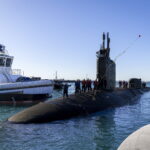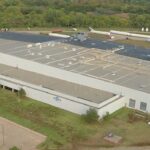
Northrop Grumman [NOC] on Thursday reported higher earnings in its fourth quarter due largely to a pension benefit while sales fell 15 percent on the divestiture last year of its information technology services business and fewer working days compared to a year ago. Adjusting for the sale of the IT business, including various pension and tax items, net income fell 14 percent to $948 million, $6 earnings per share (EPS), from $1.1 billion ($6.59 EPS) a year ago, missing consensus…

 By
By 











